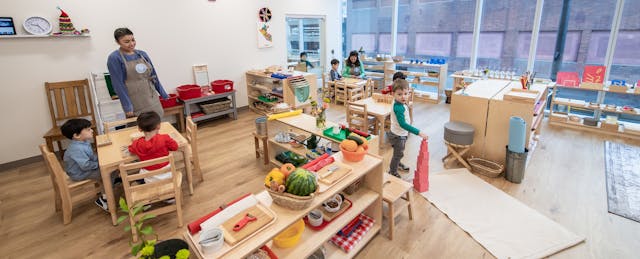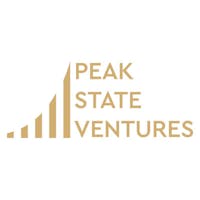Montessori learning has 100 years of refinement and validation behind it. Yet, fewer than one percent of students worldwide are in what Ray Girn, CEO of Higher Ground Education, would consider an “authentic, high-fidelity Montessori program.”
“Our goal is to build the systems of scale that allow for uncompromisingly good Montessori education that's accessible to the children of the world,” explains Girn.
Higher Ground’s global Montessori ecosystem includes 75 schools, a virtual school, a system for finding local Montessori-trained nannies and resources to support new parents and homeschoolers. All designed to take Montessori learning from fragmented to mainstream and modernized, the ultimate goal is to bring Montessori education to far more parents and children.
The pandemic could have halted that work, but Girn and his team leaned in, finding ways to support families and continue to grow Higher Ground.
EdSurge talked with Girn to understand how acquisitions and adaptations, combined with unwavering support and sage advice from investors, helped them thrive during a challenging season.
EdSurge: What’s your vision for Higher Ground, and how is technology helping you get there?
Girn: Our goal is to build the systems of scale that make uncompromisingly good Montessori education accessible to the world’s children. That means identifying why so few children are in authentic Montessori programs and creating paths to change that.
Because ours is an alternative ecosystem, and we develop meaningful skills, I think that there is an opportunity to achieve what ride-sharing apps or Airbnb have achieved: show the world another way of doing education at a sufficient scale. In doing so, we hope to inspire and empower the many others working towards meaningful education reform.
I don't see us single-handedly changing education, but I think we have a real opportunity to be part of the pioneering few who launch that change and help it ultimately take hold.

What role does technology play in your growth, particularly right now?
Our whole approach from infancy through high school is deeply technology-enabled. We are actively making the most of the opportunities to leverage technologies that exist across the educational domain.
We’re about to launch a digital platform for new and expectant parents, called Guidepost Family Framework. It’s filled with resources for how to parent for independence, bringing an integrated approach to the basics like sleeping, napping and feeding, and then more and more as children get older. Then there’s Guidepost at Home, where we digitally train and place Montessori-trained nannies and share learning materials for homeschooling.
Our virtual program is core to our operations—particularly during the pandemic. As of August, we have 10 school partners, including public schools, accessing and using our digital curriculum online.

Have acquisitions supported your scaling efforts as well?
Yes, we acquired CozyKin late last year because their platform helps us match families to nannies and nanny shares. Before that, we acquired Montessorium, which is an app-based developer as well.
The need for adaptable programming was increasing before COVID-19. Now it’s mandatory. The idea is, if you want to hire a nanny, home school, do virtual school, attend a physical school, or even set up a micro-school for two months while you’re traveling, we’re creating a program where people can move from one to the other and in any part of the world. In many ways, technology is what facilitates that.
Has the pandemic altered the way you handle workforce training?
Workforce training is one of many examples where COVID-19 is accelerating the trajectory that we were already on. If you look at Montessori, or even just education, human capital is the single most important driver. The teacher and the school leader, that's where the rubber meets the road.
From the beginning, we’ve been thinking about training digitally. How do we make it more accessible, more on the job, and do it everywhere? I think Montessori isn’t 10x, 20x, 50x bigger primarily because doing it right requires nuanced training and mentoring, and that just hasn't been done at scale yet.
We see technology as a big driver in training. We’re largely virtual, and that's accelerated because of COVID-19. We have a federally-recognized certificate from infancy through adolescence in Montessori practice. We use 3-D headsets to have this immersive experience of being in a classroom and doing micro observations, then you go into a Socratic seminar and discuss what you’ve observed. We’re trying to help educators internalize these principles, so what you learn becomes part of who you are when you’re in the classroom.
How have investors supported your growth, particularly now during the pandemic?
There was a lot of uncertainty in the spring. What you need from investors, as an entrepreneur, is conviction when you're feeling doubt and also doubt when you possibly have too much conviction. Peak State Ventures, one of our early investors, has shown that and demonstrated tremendous confidence in our mission and vision. Their trust didn't waver at a time when, particularly in April, it wasn’t clear where the world was headed.
Beyond that, they've exercised the dual virtue of being helpful in terms of introductions and access to their network, supportive critiques, but also poking holes in plans and sharpening our approach. They also recognize that we, like our students, have to find our own way, and I've appreciated that.



